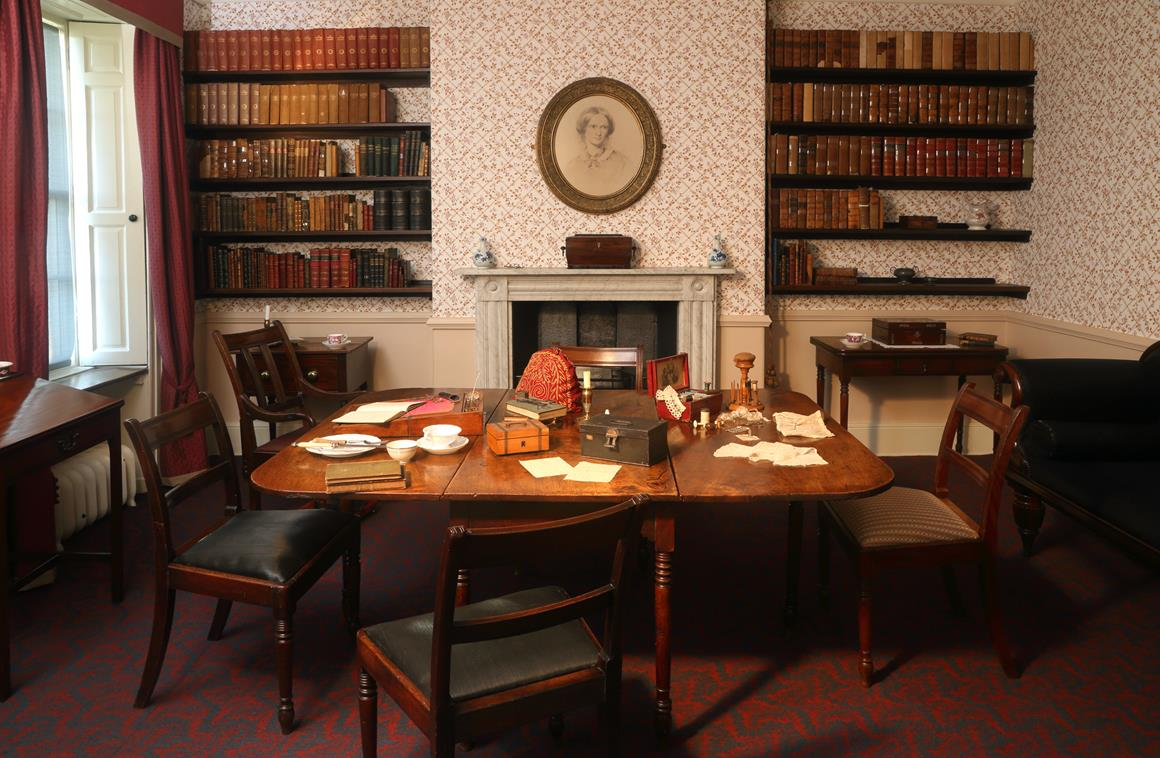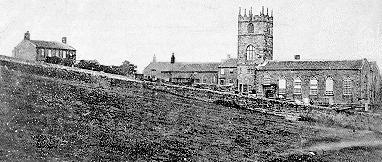Like the Bronte children, Catherine Winkworth and her sisters each imagined a continent and a kingdom of Natural History. Catherine kept a personal journal which was written in minute printed characters. In later years Catherine became a friend of Charlotte Bronte.
CATHERINE WINKWORTH, (1827-1878), author, was born in London at 20 Ely Place, Holborn, on 13 Sept. 1827.

She was the fourth daughter of Henry Winkworth, a silk merchant. Her mother, Susanna Dickenson, was daughter of a Kentish yeoman farmer. In 1829 the Winkworths removed to Manchester, and there Catherine's education was chiefly carried on by governesses at home; she studied also under the Rev. William Gaskell and Dr. James Martineau.
The family was always on intimate terms with the Gaskells, and Catherine declared that she owed to Mr. Gaskell her knowledge of English literature and her appreciation of style. On 21 April 1841 her mother died, and in 1846 her father married, as his second wife, Miss Leyburn. In the spring of that year Catherine went to Dresden to join an aunt who was living there in order to educate her daughters, and her residence there (she stayed until July 1846) gave an impetus to her study of German. In 1850 her father built himself a house at Alderley Edge, about fifteen miles from Manchester, where the family lived for about twelve years.
Though less distinguished in her literary achievements, Susanna Winkworth (1820-84) was the first of the sisters to devote herself to the art of translation, encouraged by the Gaskells' abiding interest in Germany and taught by William Gaskell (she helped E. Gaskell with her Life of Charlotte Brontë, 1857). In rendering the Theologia Germanica (1854, see Theologia Deutsch) and 25 sermons by J. Tauler (with a biographical note on his life, 1857), she conveyed basic aspects of German mysticism to a Victorian public. The combined work of the sisters thus represented ‘the two pillars of German devotional literature’ (P. N. Skrine).
SUSANNA WINKWORTH (1820-1884), translator, was born in London on 13 Aug. 1820, and received much the same education as her sister Catherine. About 1850 Susanna told Mrs. Gaskell that she would like to translate the life of Niebuhr. Mrs. Gaskell mentioned this to Bunsen, who encouraged the idea. A meeting with Bunsen followed at Bonn, where Susanna stayed from August 1850 until May 1851. The acquaintance so begun influenced the literary work of both Susanna and Catherine.
 Miss Winkworth was a philanthropist as well as author and translator. She worked among the poor of Bristol, and in her district visiting was struck by the difficulty poor people found in getting decent lodgings. She therefore rented several houses in the poorest part of the town, put them into proper repair, and let them out in tenements. She was thus the first in Bristol to make efforts for the better housing of the poor. In 1874 she formed the company which built Jacob's Wells industrial dwellings, managing them herself till the time of her death. She took also a great interest in the education of women, and in 1878 succeeded her sister Catherine as governor of the Red Maids' school, and member of the council of Cheltenham Ladies' College.
Miss Winkworth was a philanthropist as well as author and translator. She worked among the poor of Bristol, and in her district visiting was struck by the difficulty poor people found in getting decent lodgings. She therefore rented several houses in the poorest part of the town, put them into proper repair, and let them out in tenements. She was thus the first in Bristol to make efforts for the better housing of the poor. In 1874 she formed the company which built Jacob's Wells industrial dwellings, managing them herself till the time of her death. She took also a great interest in the education of women, and in 1878 succeeded her sister Catherine as governor of the Red Maids' school, and member of the council of Cheltenham Ladies' College. red-maids-school
Susanna was for some years a unitarian, bat returned to the English church in 1861
Photograph of the Jacob's Wells industrial dwellings: http://www.flickr.com/photos/brizzlebornandbred/2132333991/




I've known so little about the Winkworth connection so this is a wonderful read! I do remember reading about Charlotte's discussions before marraige with one of them and am so happy that she had the opportunity to do so. The Winkworth girls sound like they were very thoughful and caring, I'll have to learn more.
BeantwoordenVerwijderenIt's fascinating that Catherine also wrote juvenilia like the Bronte children...must be in a writers blood to do so.
xo J~
(your blog is still coming up in a very timely and quick fashion Geri...maybe 2-3 seconds)
I didn't expect to find the Winkworth sisters here! Charlotte actually confided her doubts about marrying Nicholls to Catherine, who encouraged her to marry him. There's a little titbit in Mrs Gaskell's biography - it seems that Susanna Winkworth wanted to marry Mr Gaskell!!! This destroyed the friendship between her and Mrs Gaskell, though Mrs Gaskell remained on close terms with Catherine.
BeantwoordenVerwijderen